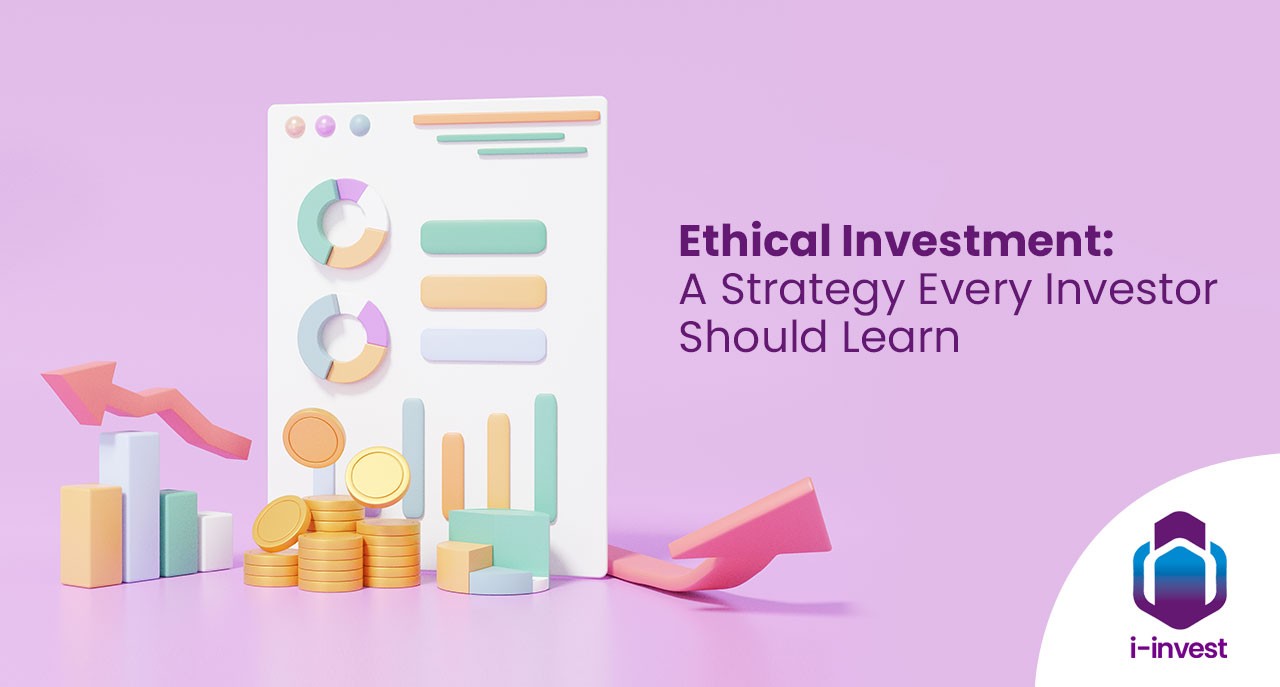
Ethical Investments - A Strategy Every Investor Should Learn
It is still early in the year, which means there is still an opportunity to start again with numerous plans and strategies to excel. As you note down your goals, do not forget to include your investments. Now the question you would probably ask is “how can I know the investments that are best suited to my values and interests?” Not to worry, we have an investment practice with your name on it and it is called Ethical investing.
What are Ethical Investments?
Ethical investment refers to a practice where a person uses his/her personal ethical code as a filter to choose preferred investments. In simple terms, It involves merging your moral compass with your investment portfolio. It also aims to support industries that are making a positive impact such as creating an investment return as well as funding projects for sustainable energy.
It prioritizes what you want to invest in or what you want to avoid investing in. These are concerns you may want to share with your investment advisors to help develop your portfolio. Moreover, a typical Ethical investor may avoid investing in sin stocks because it does not align with their ethical codes. Sin stocks are companies that are involved in stigmatized activities such as firearms, smoking, or alcohol.
Why Ethical Investments?
First and foremost, Ethical Investments have an emotional appeal based on their ability to meet your requirements, these may in turn aid the financial projections of a company. In addition, it sits better when the business does well. This is due to the fact that the companies in question mostly have policies that prevent a toxic work environment. This may be useful to an Ethical investor because such companies are less likely to face lawsuits of any kind.
Another reason would be de-risking your portfolio because companies recognize that paying attention to environmental, social, and governance (ESG) issues is not just about maintaining a reputation but is also essential for long-term survival. The term ‘sustainability’ is not just about being clean, green, and ethical. It is about ensuring a business or investment’s ability to support future returns.
Some types of Ethical investments
1. Socially Responsible Investment Funds (SRI Funds)
Socially Responsible investments refer to a strategy that considers both financial returns and social development schemes to bring positive social impact. SRI funds avoid investing in controversial areas such as firearms, tobacco, alcohol, and oil. Here, the investor’s moral value is given critical importance in investment selection.
2. Environmental, Social, and Governance Funds (ESG Funds)
This is an investment strategy that uses Environmental, social, and governance factors to judge an investment's financial returns and its overall impact. As opposed to SRI funds, ESG funds consider how the environmental, social, and governance risks and opportunities can cause significant impacts on the performance of a company. Ethical investors can invest in sustainability while maintaining the same level of returns as they would with a standard approach.
How to invest in an ethical manner
The first thing you may want to consider is outlining your ethical portfolio. This will help you cross reference your potential investments against your own requirements. Additionally, outlining your portfolio may be more profitable if done after consulting your financial advisor to avoid grave mistakes.
It is also worth noting that ethics vary from person to person which means that the intricacies of every Ethical investment are peculiar to its investor. Asides from this, evaluating historical and current data will help an investor measure returns.
In conclusion, it may be profitable to consider the company's commitment to social issues before analyzing its mission statement to avoid attracting lawsuits and the like. Ethical investing gives you peace of mind because you can live through your investments. Make sure Ethical investments are part of your plans for 2023.